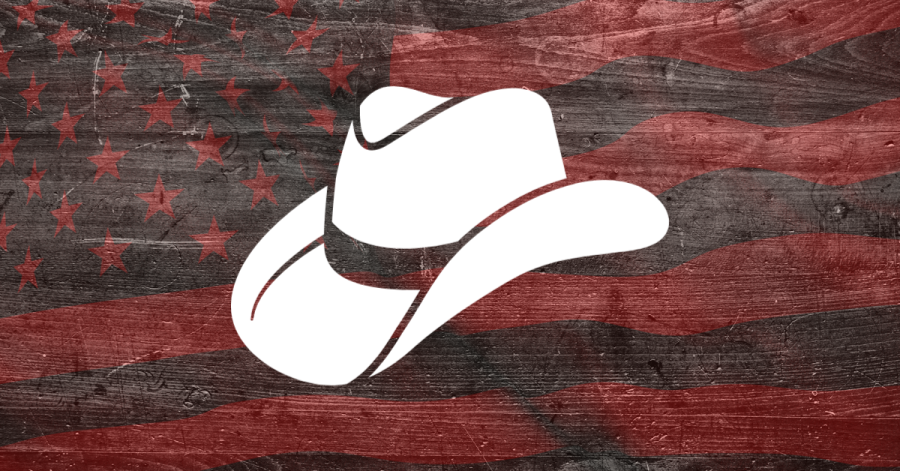New wave of country music showcases progressive roots
March 29, 2023
Beginning after the early 2000s, there was a significant shift in the tone of country music. The genre shifted away from its roots of storytelling and communicating the struggles of working class people living in rural America. In the aftermath of 9/11, country music began to convey more of a brand based around conservative ideology and rejection of contemporary liberalism.
Looking over the most popular songs of the genre today, most music videos have extensive brand placement throughout their productions. There’s a general anti-urban and anti-liberal sentiment that claims a stake in our contemporary culture wars. They repeat popular idioms and have adapted to the digital age through the appropriation of rap elements into their songs and largely reject the acoustic regime of their forebears.
Older country legends such as Johnny Cash, Dolly Parton and Willie Nelson had a completely different approach than current icons such as Florida Georgia Line or Kane Brown. Much of their lyricism and even instrumentalism was driven from a sense of class-consciousness and solidarity with labor and civil rights movements.
Cash was known for playing in prisons and protesting the criminal justice system; his first wife, whom he married while interracial marriage was still illegal, was African American. His hit song “Man in Black” is a commentary on social and financial inequality in the US. Dolly Parton has spent most of her career creating music about women struggling under the patriarchal system of her time and even took strong stances on the labor movements of the 1970s. Even in 1955, Tennessee Ernie Ford released his single “Sixteen Tons,” in which he advocates for the labor movements of miners in the Appalachian region.
The instrumentals of older country music originate from cultures across the world that found their way into North America. The banjo originates from West Africa, the derivation of yodeling used in contemporary singing originates from Scotland, much of the composition and structure of the sound has indigenous roots and much of the sound has Hispanic influences. Not to mention the plethora of peoples that would be involved in the more contemporary genre to form in the mid-20th century.
A new generation of artists is attempting to honor the original intent and sound of the music. Artists like Tyler Childers, Zach Bryan, Colter Wall, Andrew Montana and The Devil Makes Three are among many bringing the genre back to its folk roots.
Tyler Childers probably honors the roots of the genre most closely, using largely traditional instruments to communicate modern struggles, such as the opiate epidemic and economic instability in the Appalachians, to a new audience. Zach Bryan, with his raw acoustics, communicates many of the younger generations’ concerns about the world in a way that feels natural and real. Colter Wall readapts the mythology of the early pioneers without romanticizing it. He often taps into the ugliness of the reality of colonization, displacement and industrial domination in rural life.
I know, from personal experience growing up in a southern rural area, that most people my age were listening to heavy metal such as Slipknot or Korn as late as 2016. They couldn’t relate to contemporary country music or its inability to discuss issues that faced youth in rural areas, such as lack of access to opportunity, underfunded schools and crumbling infrastructure. There was a deep frustration that only that genre could communicate.
It wasn’t until I moved to a larger, more urban area in the south where my peers were actually listening to country music that it became apparent to me that modern country was communicating more of a brand identity of southern living as opposed to an actual art conveying the struggle of rural Americans.
Ever since manufacturing left the states and agriculture became largely automated and corporate-owned, rural America has been left with no actual economic prospects. To anyone growing up or living there, the usual route to survive is to escape. These areas are largely propped up by retiring populations, and the people left working or surviving there are faced with a plethora of problems, from food, job and housing insecurity to drug addiction and alcoholism.
This new wave of country music, largely dubbed as “Americana,” communicates these issues better than artists featured on country stations and concert venues ever could.
Here are some other “Americana” artists whom I believe are redefining the genre to reflect the actual struggles of rural Americans:
Odie Leigh
Lost Dog Street Band
Town Mountain
Trampled by Turtles
Charley Crockett
Billy Strings
Possessed by Paul James
Joseph Huber
Cody Jinks
The Ghost of Paul Revere
Benjamin Todd


